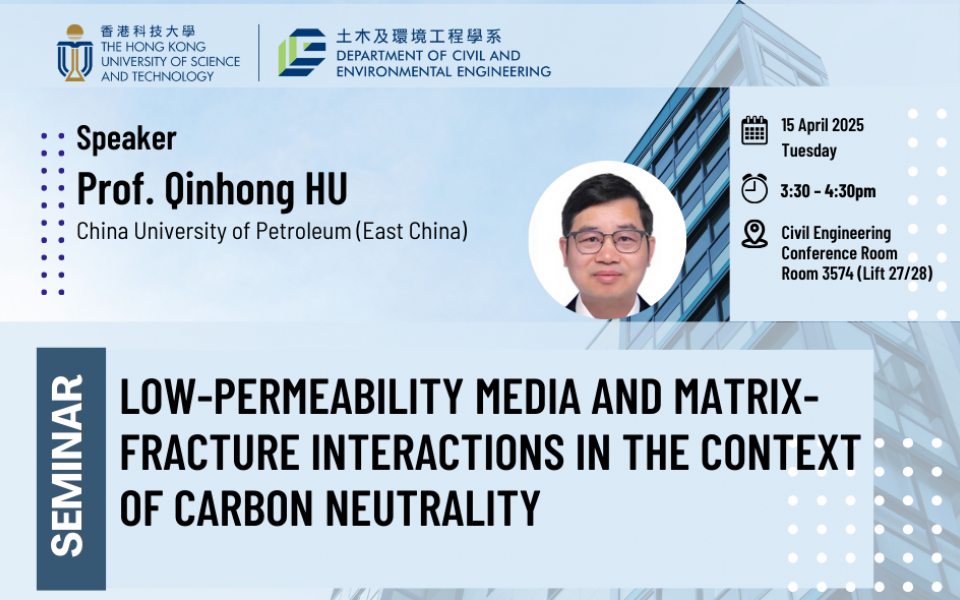Civil Engineering Departmental Seminar - Low-permeability media and matrix-fracture interactions in the context of carbon neutrality
Supporting the below United Nations Sustainable Development Goals:支持以下聯合國可持續發展目標:支持以下联合国可持续发展目标:
Low-permeability media and matrix-fracture interactions in the context of carbon neutrality
Deep-earth energy studies involve the efficient exploitation of shale oil and gas, geological storage of carbon dioxide and green hydrogen, geological disposal of high-level nuclear waste, and enhanced geothermal energy utilization, involving rock masses such as sandstone, carbonate rock, shale, salt rock, granite and basalt, and generally has natural fractures or requires artificial fracturing. Nano-petrophysical studies include rock properties, fluid (formation water, liquid hydrocarbons, gas, supercritical CO2) properties, and the interaction between rocks and fluids. In particular, it is necessary to consider the coupled thermal-hydraulic-mechanical-chemical-biological processes of low-permeability rocks with a large number of nano-scale pores and deep-earth environments. The microscopic pore connectivity and matrix-fracture interaction of low-permeability rocks play an important role in controlling macroscopic fluid seepage and mass-heat transfer. This presentation focuses on the dual systems of micro-nano pores and fractures in rock masses, and establishes an independently developed complementary multi-method and multi-scale integration (such as liquid-gas diffusion, hydrophilic-hydrophobic phase nano-sized tracers, and micron-scale laser ablation-ICP-MS tracer element distribution imaging, etc.) for an integrated nano-petrophysical research system. It demonstrates the unique application of large scientific facilities (small-angle neutron and X-ray scattering), conducts innovations in theory (dual-zone pore connectivity) and methods (instrument development and application), and clarifies whether the application of the above-mentioned rock masses in the field of energy geosciences and engineering can help achieve the goals of carbon neutrality.
Dr. (Max) Qinhong Hu is a Chair Professor at China University of Petroleum (East China) and Emeritus Distinguished Professor at the University of Texas at Arlington where he joined in 2008 after working at Lawrence Berkeley and Livermore National Laboratories from 1997 to 2008 & obtaining his PhD degree at the University of Arizona in 1995. He was elected as a Fellow of Geological Society of America in 2013 and American Association for the Advancement of Science in 2020, and has won 27 awards including the Fulbright Global Scholar Award from the US Department of State. His major research interests are micro-scale pore structure and emergent effect on macro-scale fluid flow and chemical transport in porous and fractured media for geological and engineering applications. He serves as the Editor-in-Chief for Marine and Petroleum Geology and Editorial Board Members for 12 other journals, has published 260+ SCI journal articles and 280+ other peer-reviewed technical publications, and mentored a total of ~220 postdoctoral, PhD, MS, and undergraduate students.
